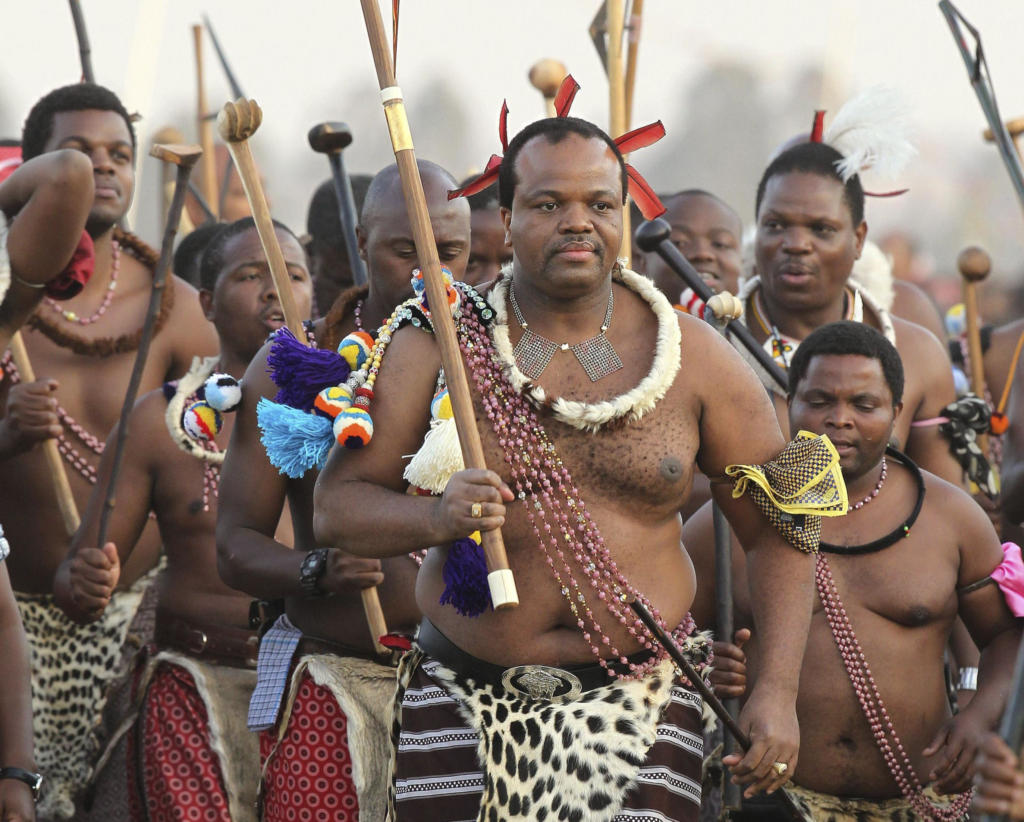DEMOCRATIC ASPIRATIONS BLOCKED BY MONARCHY IN ESWATINI

Eswatini, Africa’s last remaining absolute monarchy, stands as a testament to the challenges of democratization in the face of entrenched autocratic rule. The year 2023 underscored the widening chasm between the people’s growing demand for political reform and the monarchy’s unyielding grip on power. Led by King Mswati III, the regime continues to block democratic aspirations, using violence, repression, and institutional manipulation to maintain control. The resilience of Eswatini’s citizens, however, serves as a powerful reminder that the fight for democracy is far from over.
Since the 1973 decree banning political parties, Eswatini has been effectively ruled as a monarchy with no space for opposition. While parliamentary elections were held in August and September 2023, they offered little opportunity for meaningful political change. Only independent candidates are permitted to run for office, ensuring that the electoral process reinforces the king’s authority rather than reflecting the will of the people. The king retains ultimate power, appointing the prime minister, controlling the judiciary, and wielding the authority to make laws by decree. This system leaves the citizens of Eswatini voiceless and vulnerable to exploitation.
The monarchy’s resistance to change is reflected in its response to pro-democracy movements. The brutal crackdown on activists and opposition figures continued unabated in 2023, with unlawful killings, arbitrary detentions, and torture becoming routine tools of repression. The assassination of human rights lawyer Thulani Maseko in January was a chilling reminder of the lengths the government will go to silence dissent. Maseko’s killing, widely regarded as a politically motivated attack, remains uninvestigated, as do other violent incidents targeting opposition members and activists.
The state’s suppression of political dissent has extended to labor unions and civil society groups. The Swaziland Transport, Communication and Allied Workers Union (SWATCAWU), which has been at the forefront of calls for political reform, faced relentless persecution. In January, the union’s general secretary, Sticks Nkambule, went into hiding after an arrest warrant was issued against him. Similarly, peaceful protests were met with disproportionate violence, such as the police crackdown on student demonstrators in Manzini. These events highlight the government’s determination to crush even the most peaceful forms of opposition.
The use of the legal system to suppress dissent is another hallmark of Eswatini’s autocratic rule. Former MPs Mthandeni Dube and Mduduzi Bacede Mabuza were convicted under the 2008 Suppression of Terrorism Act for their role in advocating for political reform. Their trials were marred by allegations of torture, denial of legal representation, and politically motivated charges. The sentences handed down to these reform advocates send a clear message to the people of Eswatini: any challenge to the monarchy will be met with harsh consequences.
Beyond political repression, the government’s neglect of social and economic issues has deepened the suffering of ordinary citizens. The healthcare system remains in a state of crisis, with chronic shortages of medical supplies, equipment, and personnel. Protests in June and July brought attention to the dire state of public healthcare, but the government’s promises of reform have yet to materialize. Communities facing forced evictions due to outdated land governance policies are left with little recourse, as the state prioritizes the interests of the powerful over the rights of the vulnerable.
The situation is particularly grim for the LGBTI community, which continues to face systemic discrimination. Same-sex relationships remain criminalized, and attempts to secure basic rights for LGBTI individuals are met with resistance. In July, the Supreme Court ruled that the government’s refusal to register the Eswatini Sexual and Gender Minorities (ESGM) organization was unconstitutional. However, the government defied this ruling, reflecting its unwillingness to respect judicial independence or recognize the rights of marginalized communities.
At the heart of Eswatini’s challenges lies a monarchy unwilling to relinquish its grip on power. King Mswati III’s lavish lifestyle, marked by opulent spending and numerous royal celebrations, stands in stark contrast to the poverty endured by the majority of the population. This disconnect has fueled resentment and galvanized calls for change, with activists, labor unions, and civil society groups increasingly uniting in their demands for a more just and democratic society.
Despite the monarchy’s efforts to stifle dissent, the spirit of resistance remains strong. The people of Eswatini have shown remarkable courage in the face of adversity, continuing to push for reform even as they face violence and persecution. The international community has a critical role to play in supporting these efforts, applying pressure on the Eswatini government to respect human rights, uphold the rule of law, and create space for meaningful political dialogue.
The path to democracy in Eswatini will not be easy, but it is a journey worth undertaking. The citizens of this small but resilient nation deserve a government that reflects their aspirations, respects their rights, and prioritizes their well-being. Until the monarchy embraces reform and acknowledges the legitimacy of the people’s demands, the fight for democracy will persist.
Eswatini’s future depends on the courage and determination of its people, and the solidarity of those who stand with them in their quest for freedom and justice. The time has come for the monarchy to listen to its citizens and begin the long-overdue process of democratic transformation.



